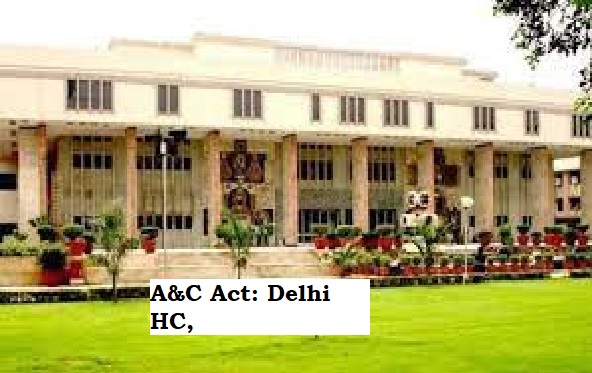


The Delhi High Court recently rendered a verdict emphasizing the significance of upholding settlement agreements and discouraging challenges based on unsubstantiated claims of fraud, coercion, or duress under Section 34 of the Arbitration and Conciliation Act (A&C Act). In the case presided over by Justice Sachin Datta, petitioners Mr. Sanjeev Bansal and Mrs. Usha Bansal sought to contest a Settlement Agreement arising from a loan transaction.
The dispute originated from a loan arrangement where the petitioners, acting as borrowers, had obtained a loan from the respondent. As part of the security for the loan, a mortgage was established over a property. Recognizing the need for resolution, the parties opted for mediation to settle their disputes amicably. During the mediation proceedings facilitated by a designated mediator, the parties engaged in negotiations, culminating in the execution of a Settlement Agreement.
This Agreement meticulously outlined the terms for the repayment of the outstanding loan amount by the borrowers in exchange for the release of the mortgaged property. The borrowers committed to repaying INR 7.00 crores by specific dates with interest, and the outstanding loan amount was to be restructured into a new term loan at a reduced interest rate. The Agreement further specified that the borrowers would withdraw notices and allegations, remain bound by its terms, and acknowledge the settlement voluntarily, without coercion. Additionally, it was agreed that the Agreement would be treated as an Arbitral Award under the A&C Act.
However, dissatisfied with the settlement, the borrowers attempted to challenge it under Section 34 of the A&C Act. The court scrutinized the contentions of the petitioners, noting that Mr. Sanjeev Bansal admitted to signing the Agreement. Therefore, their challenge based on the non-supply of a copy lacked merit. Furthermore, Mrs. Usha Bansal's claim of having no knowledge of the Agreement was contradicted by evidence—an email from her authorizing her husband to represent her in the mediation proceedings.
The court delved into the petitioners' assertions that the Settlement Agreement was tainted by fraud, coercion, and undue influence. It highlighted that the Agreement explicitly stated it was reached without any external pressure and after the parties fully understood its contents. The crucial observation was that the petitioners did not raise any objections before or immediately after executing the Agreement. Despite having the opportunity to contest the terms during the mediation, they willingly participated and chose to finalize the Agreement.
Emphasizing the lack of credible evidence supporting the plea of fraud, coercion, or duress, the court affirmed the binding nature of the Settlement Agreement. It underscored an objective reading of the Agreement, revealing the parties' free consent and mutual intention to create a final and binding contract. The court's ruling aimed to discourage challenges to settlements on flimsy grounds, underscoring the importance of fostering amicable resolutions in legal disputes.
In conclusion, the Delhi High Court's decision serves as a precedent reinforcing the sanctity of settlement agreements and discouraging litigants from attempting to overturn such agreements without substantial grounds, thereby promoting the efficiency and effectiveness of alternative dispute resolution mechanisms.
TAGS: Mediation Proceedings Loan Transaction Mortgage Arbitral Award Repayment Terms Consent and Intent